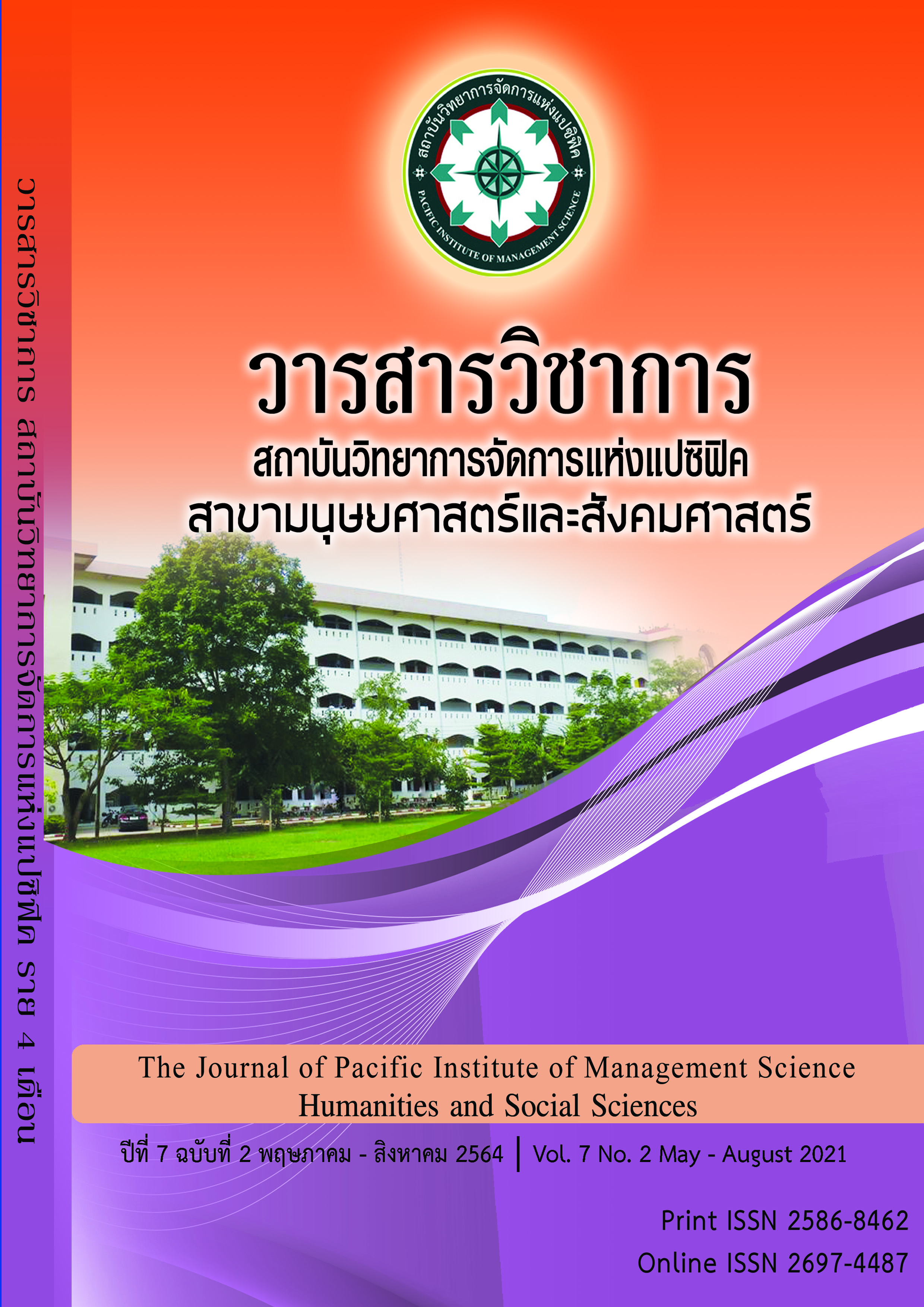Performance Appraisal in Disruption Era
Keywords:
Performance appraisal, DisruptionAbstract
Performance appraisal is the main element of system approach in management. Performance result is also one of the essential tools for developing the organization productivity with higher volume and quality, especially in the disruptive environmental change. Meanwhile, evaluation is important to employees in considering their own competency according to the individual development plan which it is important for supervisors and organization importance in determining job positions in the career field in order to advance the field of development. However, performance assessment is not just for proof, but for improvement of work that will improve employee to keep up with the organization that must change abruptly in the era of adjustment. Creative performance appraisal should be for development rather than auditing because this will give the assessed personnel learning and motivation for the development of their performance and the organization's innovation and management influence directly to the organization efficiency. In addition, creating cooperation between employee can be promoted the organization into a high-performance organization which it is also has positive affect on employee to have 21st century skills in growth mindset, learning and innovation skills, information media and technology skills, and life and work skills in the context of competition in the disruption era.
References
ชูชัย สมิทธิไกร. (2556). การสรรหา การคัดเลือก และการประเมินผลการปฏิบัติงานของบุคลากร.
พิมพ์ครั้งที่ 4. กรุงเทพฯ: สำนักพิมพ์แห่งจุฬาลงกรณ์มหาวิทยาลัย.
ธิติมา ไชยมงคล. (2563). รู้ทันปัญหา Gen Z เป็นเรื่องง่ายๆแค่เข้าใจ. [ออนไลน์]. สืบค้นเมื่อ 19
พฤษภาคม 2563. จาก https://www.prachachat.net/csr-hr/news-382415
นครินทร์ วนกิจไพบลูย์. (2563). ทุกเรื่องที่อาจยังไม่เคยรู้ของ OKR จาก ศ.ดร.นภดล ร่มโพธิ์.
[ออนไลน์]. สืบค้นเมื่อ 8 กุมภาพันธ์ 2563. จาก https://thestandard.co/podcast/thesecretsauce126/:8
บวรนันท์ ทองกัลยา. (2562). การทำงานของ HR ไทยต่อจากนี้ผ่านความเห็นของคุณบวรนันท์ ทองกัลยา
นายกสมาคม PMAT. [ออนไลน์]. สืบค้นเมื่อ 19 มีนาคม 2563. จาก https://th.hrnote.asia/tips/190423-pmathrfuture/
พิชญ์พจี สายเชื้อ. (2562). HR ต้องเปลี่ยนแปลงภายใต้Business Disruption.
[ออนไลน์]. สืบค้นเมื่อ 8 มิถุนายน 2563. จาก https://www.prachachat.net/csr-hr/news-378006
สถานีโทรทัศน์ไทยพีบีเอส. (2561). บริหารองค์กรแบบปราดเปรียวตั้งเป้าหมายบุคคลOKR แทนที่ KPI. [ออนไลน์]. สืบค้นเมื่อ 31 ตุลาคม 2562. จาก https://www.youtube.com/watch?v=UxUD2KPzG70
สมาคมการจัดการงานบุคคลแห่งประเทศไทย. Managing OKRs in a Post COVID-19 World OKRs กับโลกหลัง COVID19. [ออนไลน์]. สืบค้นเมื่อ 29 เมษายน 2563.จาก https://www.facebook.com/pmatHRsociety/videos/
อนันต์ชัย คงจันทร์. (2558). การจัดการทรัพยากรมนุษย์. พิมพ์ครั้งที่ 2. กรุงเทพฯ:
สำนักพิมพ์แห่งจุฬาลงกรณ์ มหาวิทยาลัย.
องอาจ นัยพัฒน์. (2558). การประเมินผลการปฏิบัติงานของบุคลากรในสถาบันอุดมศึกษา: กรอบแนวคิดและ
แนวทางปฏิบัติเพื่อการพัฒนา. วารสารการวัดผลการศึกษา 21(1) : 15-33.
อัจฉรา จันทร์ฉาย. (2558). คู่มือการวางแผนกลยุทธ์และการจัดทำ BSC สู่ความเป็นเลิศทางธุรกิจ (BALANCED SCORECARD). พิมพ์ครั้งที่ 14. กรุงเทพฯ: โรงพิมพ์แห่งจุฬาลงกรณ์มหาวิทยาลัย.
Bracken, D.W., & Rose, D.S. (2011). When does 360 degree feedback create behavior change? And how would we know it when it does?. Journal of Business and Psychology. 26 (2) : 183-192.
Christensen, R. K., & Whiting, S. W. (2018). Evaluating Inrole and Extrarole Behaviors across Sectors. Public Personnel Management 47 (3) : 314-334.
David B. & Dale S. R. (2011). When Does 360-Degree Feedback Create Behavior Change? And How Would We Know It When It Does?. Journal of Business and Psychology 26 (2) :
-192.
Fatemeh, N., Mohammad, H., Zolghadr S., & Ali, Z. S. (2017). Organizational knowledge documentation in project-based institutes. Electronic Library. 35 (5) : 994-1012.
Honyenuga, B. Q., Tuninga, R. S. J., & Ghijsen, P. W. T. (2019). Management innovation and organizational performance: the mediating role of high performance organization framework. International Journal of Business and Globalisation 22 (3) : 295-315.
Kaplan, R.S. & Norton, D.P. (2006). Alignment: Using the Balanced Scorecard to Create Corporate Synergies. USA: Harvard Business School Press.
Kuzulu, Ece & Iyem, Cemal. (2016). Is 360 Degree Feedback Appraisal an Effective Way of Performance Evaluation? International Journal of Academic Research in Business and Social Sciences 6 (5) : 172-182.
Lisa M. Keeping & Paul E. Levy. (2000). Performance appraisal reactions: Measurement, modeling, and method bias. Journal of Applied Psychology 85 (5) : 708-723.
Maggie, F. (2017). Leadership reflections: leadership skills for knowledge management. Journal of Library Administration 57 (6) : 674-682.
McClelland D.C. (1998). Identifying competencies with behavioral event interviews. Psychological Sciences 9 : 331-339.
Senge, P. M. (2006). The fifth discipline: The art and practice of the learning organization. USA:
Doubleday.
Venkateswara Rao, T. (2016). Performance Management: Toward Organizational Excellence. 2nd ed. India: Sage Publications Pvt.
Downloads
Published
Issue
Section
License
Copyright (c) 2021 Pacific Institute of Management Science

This work is licensed under a Creative Commons Attribution-NonCommercial-NoDerivatives 4.0 International License.
บทความที่ได้รับการตีพิมพ์เป็นลิขสิทธิ์ของ สถาบันวิทยาการจัดการแห่งแปซิฟิค
ข้อความที่ปรากฏในบทความแต่ละเรื่องในวารสารวิชาการเล่มนี้เป็นความคิดเห็นส่วนตัวของผู้เขียนแต่ละท่านไม่เกี่ยวข้องกับสถาบันวิทยาการจัดการแห่งแปซิฟิค และคณาจารย์ท่านอื่นๆในสถาบันฯ แต่อย่างใด ความรับผิดชอบองค์ประกอบทั้งหมดของบทความแต่ละเรื่องเป็นของผู้เขียนแต่ละท่าน หากมีความผิดพลาดใดๆ ผู้เขียนแต่ละท่านจะรับผิดชอบบทความของตนเองแต่ผู้เดียว







